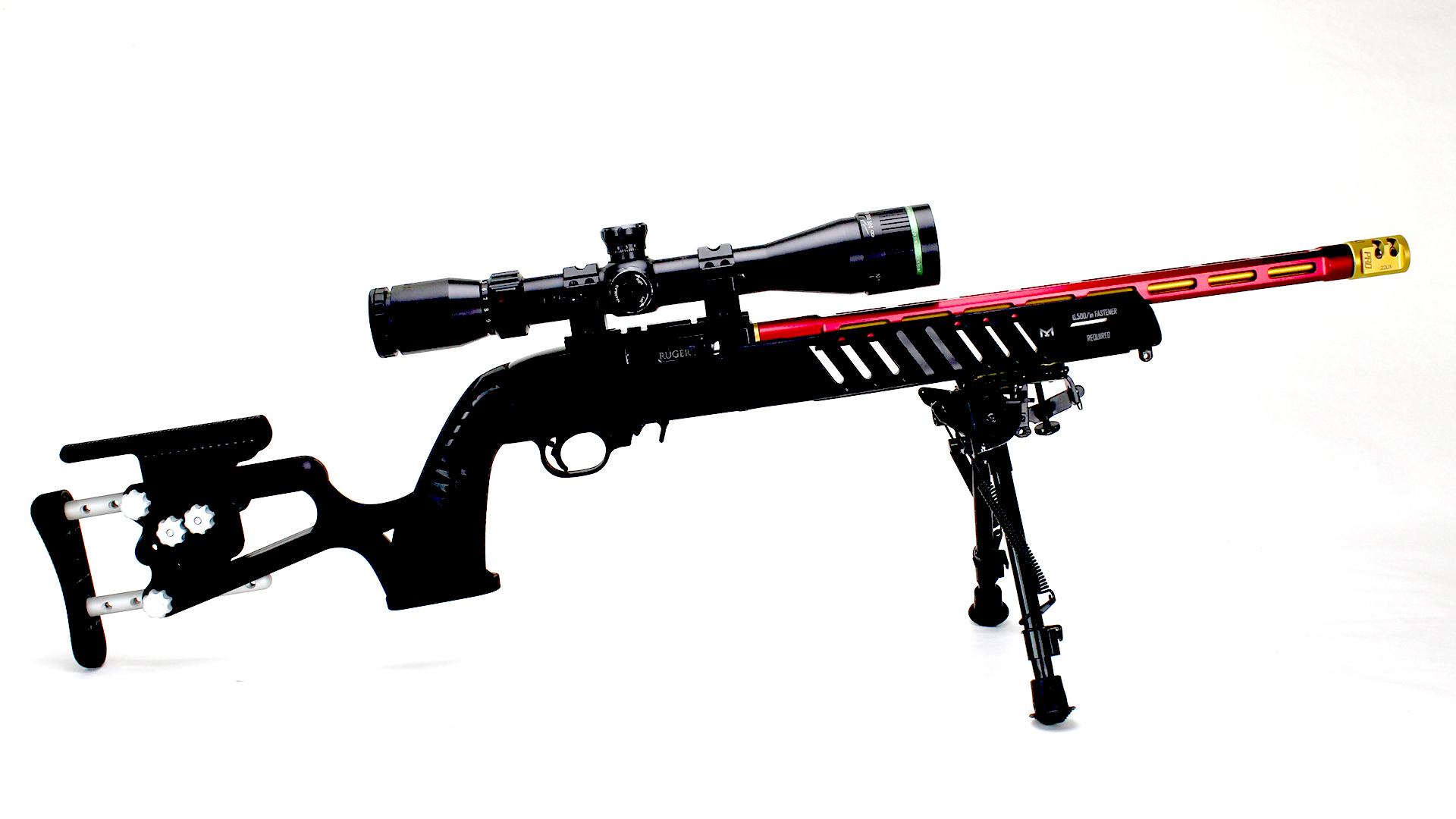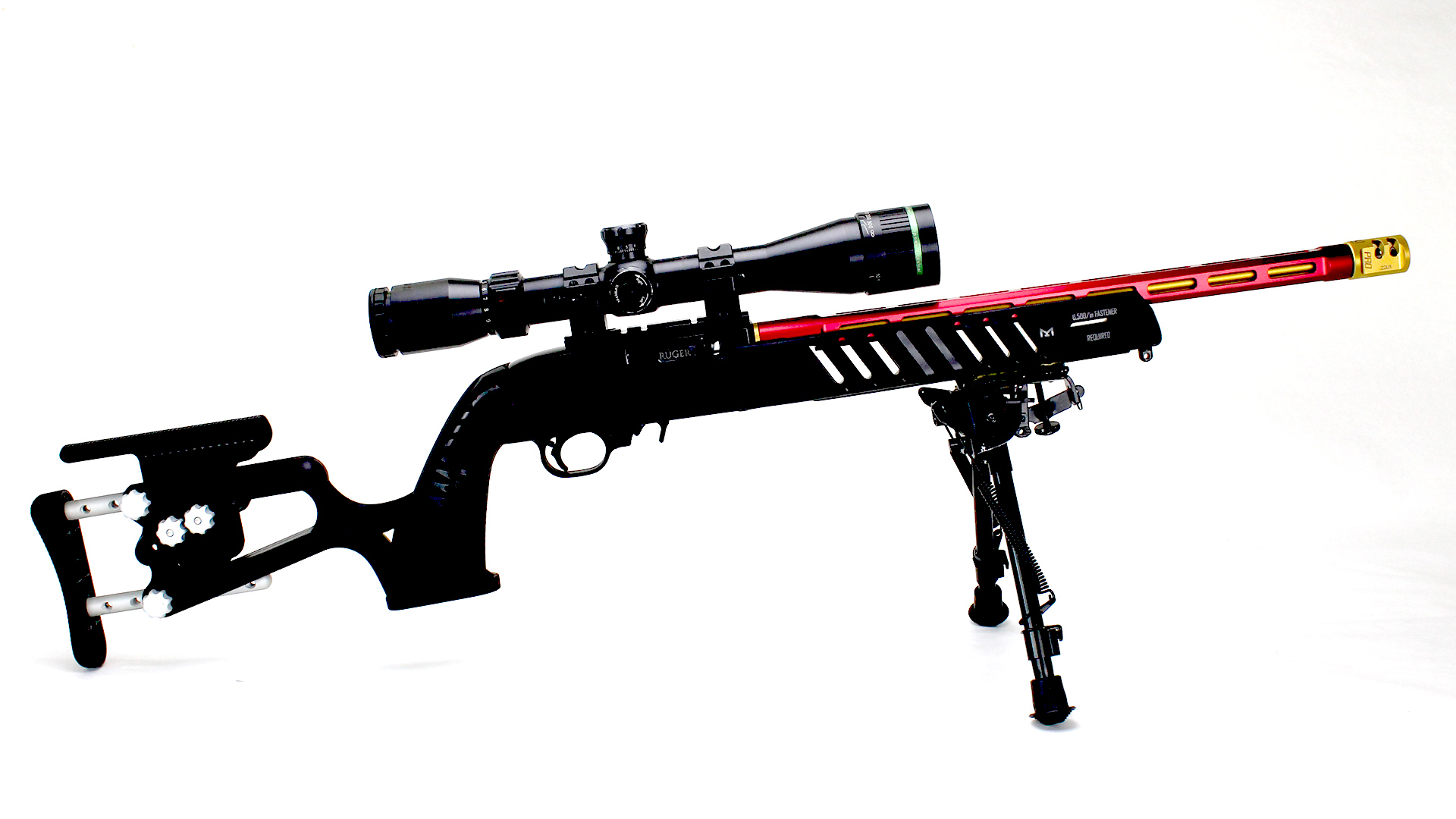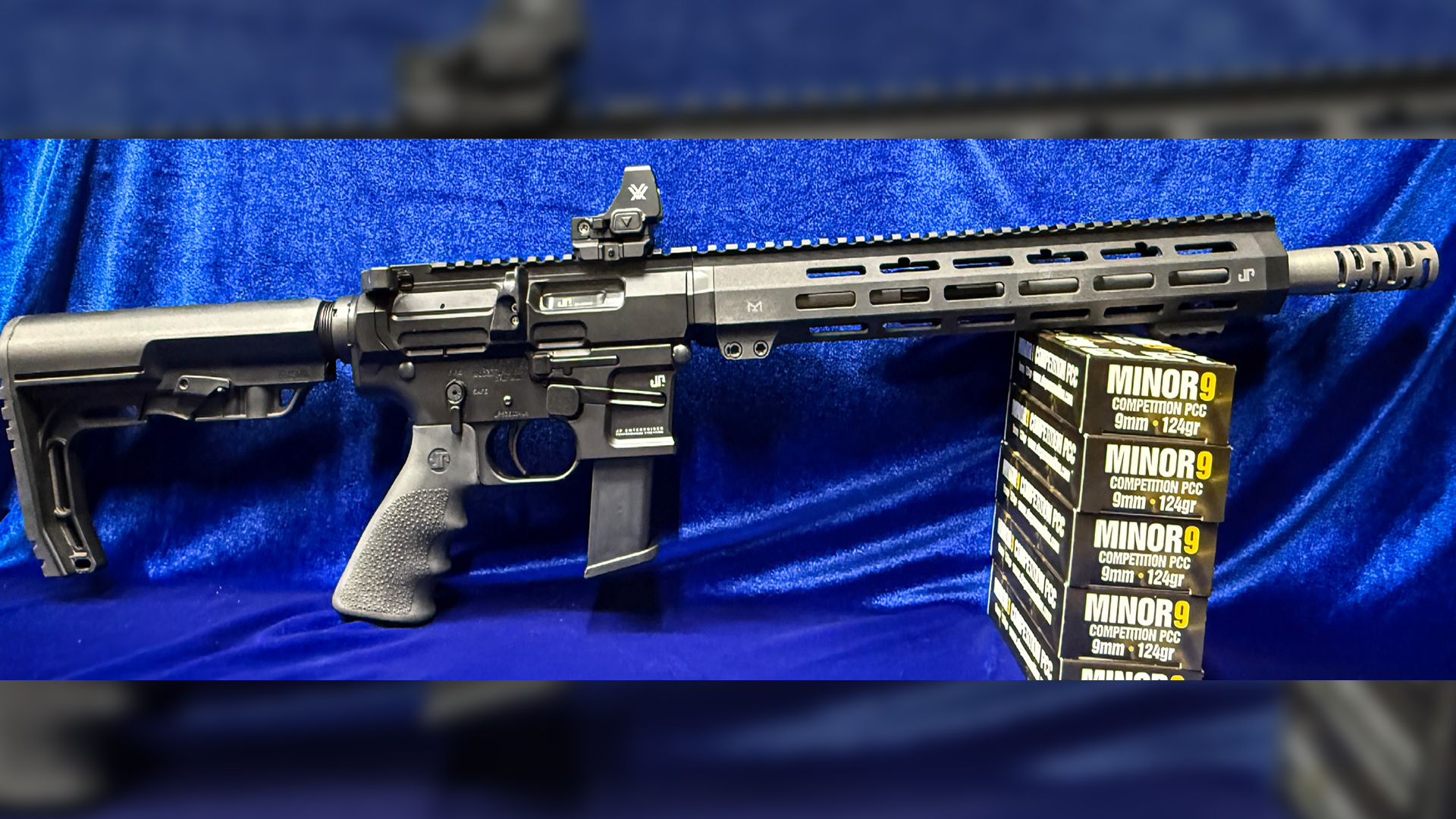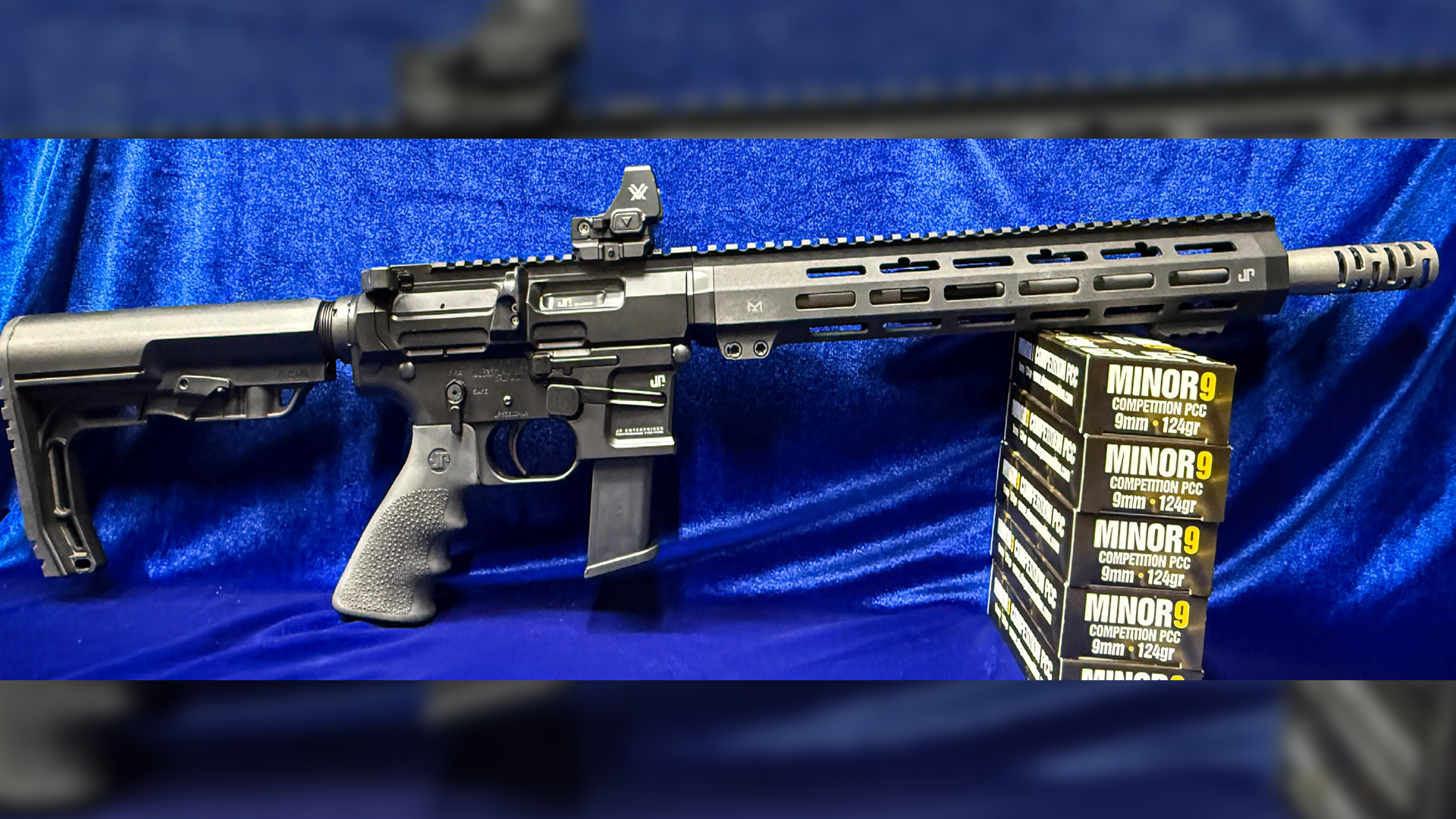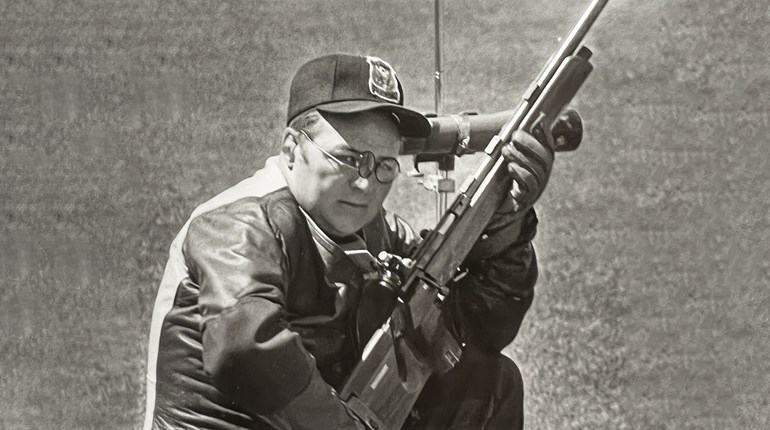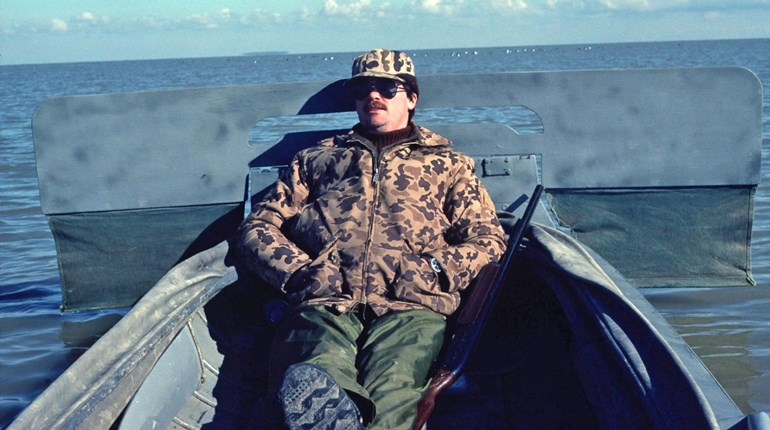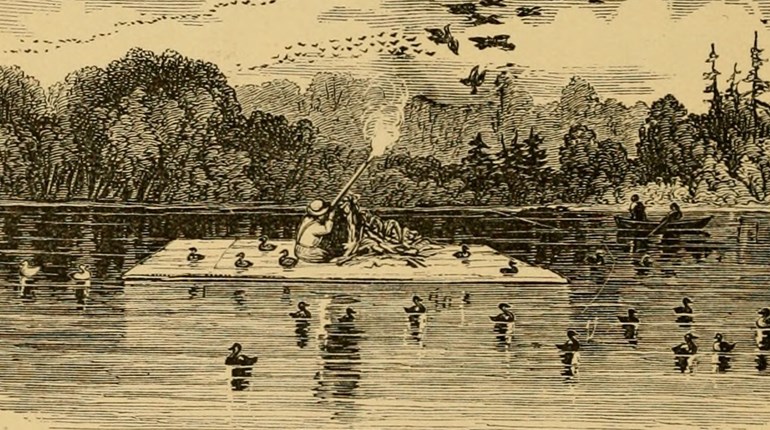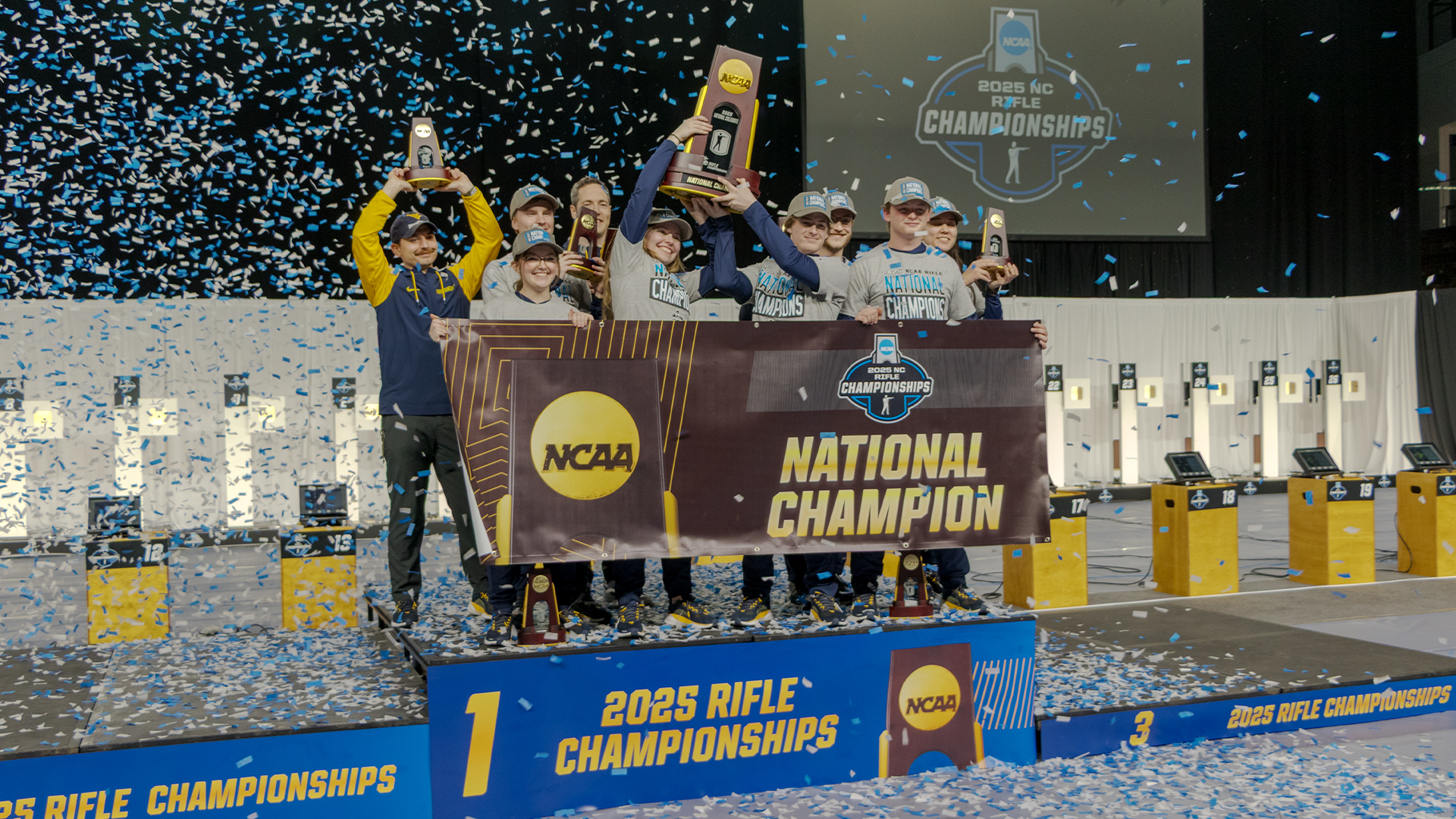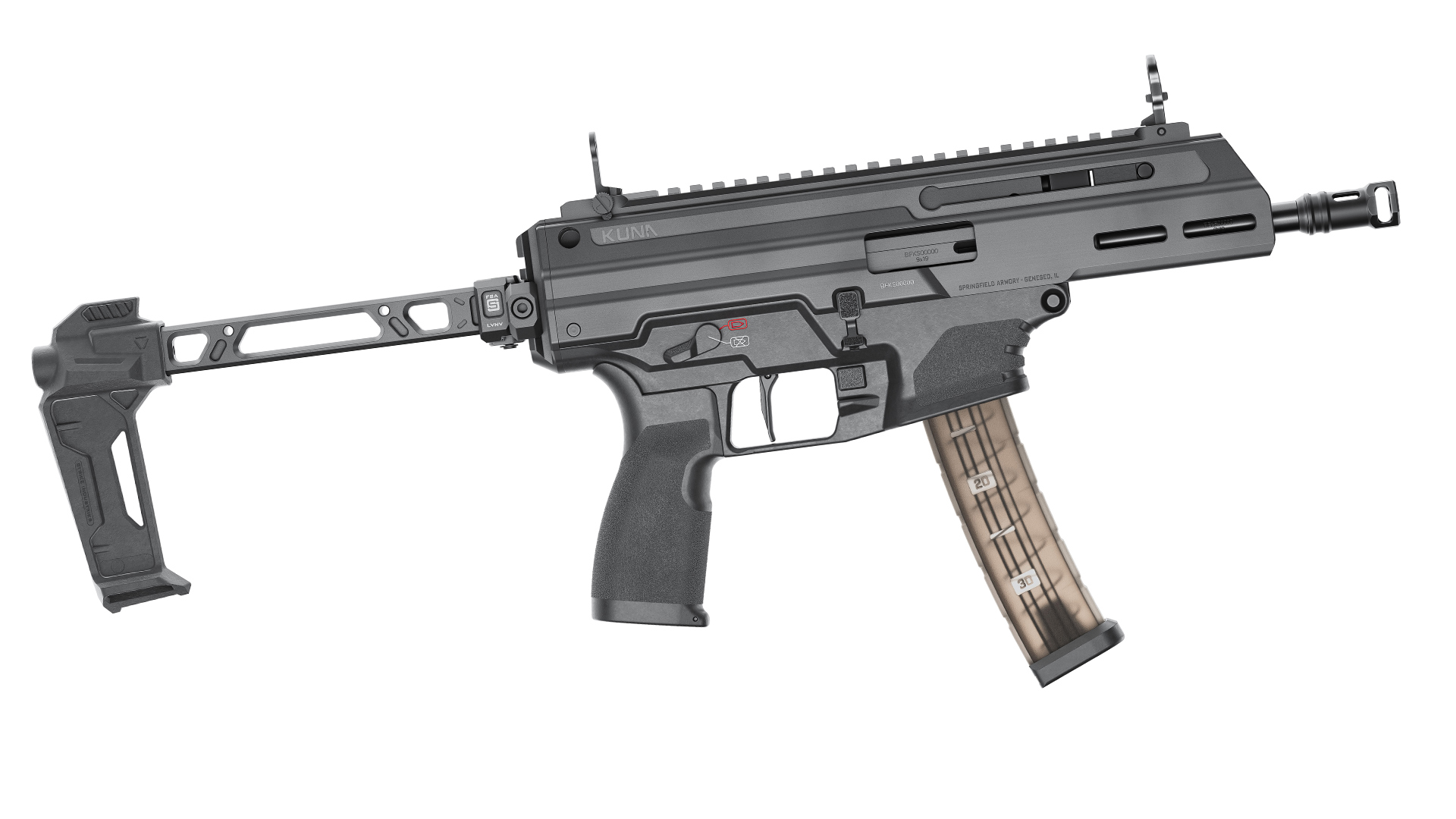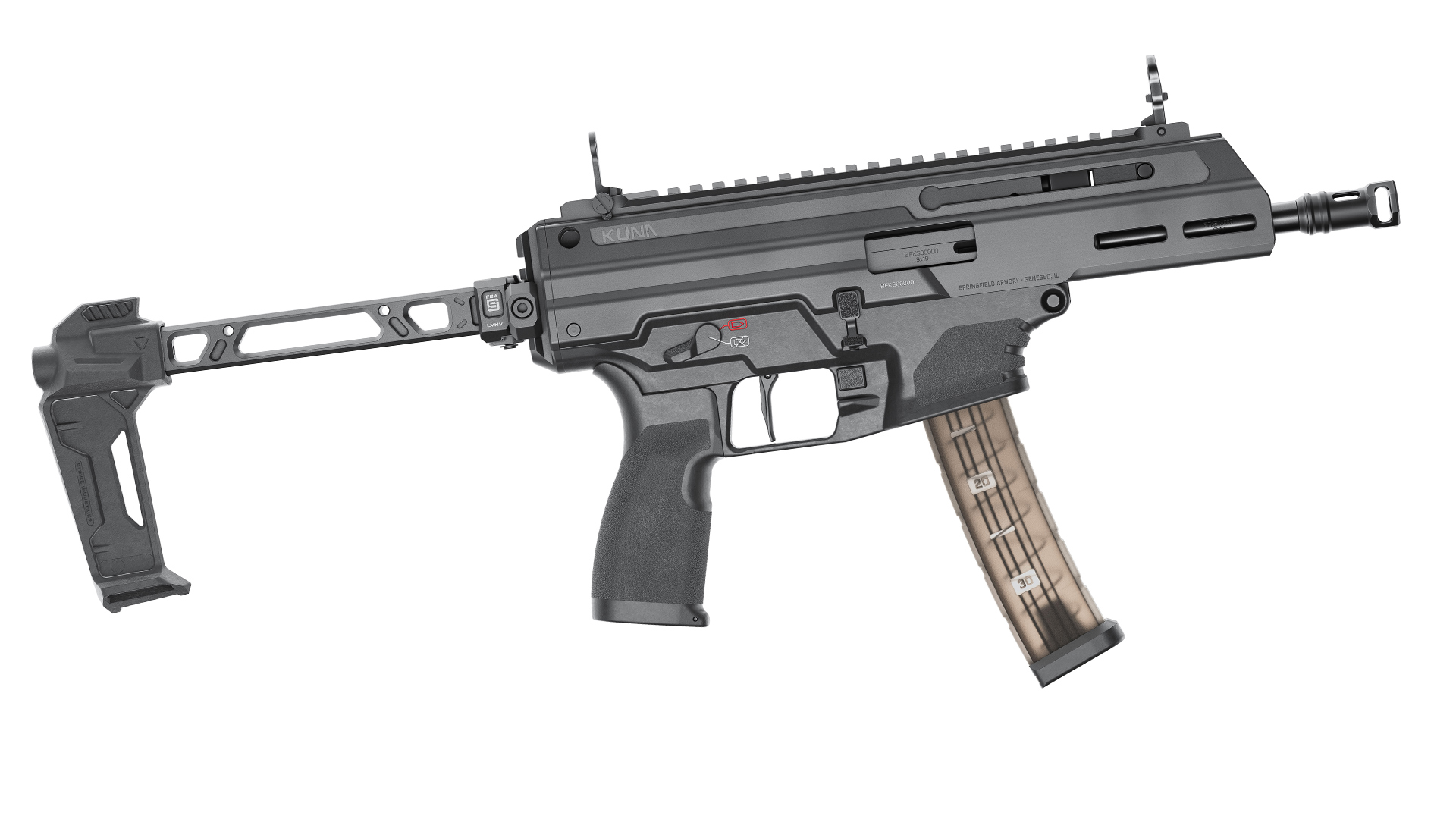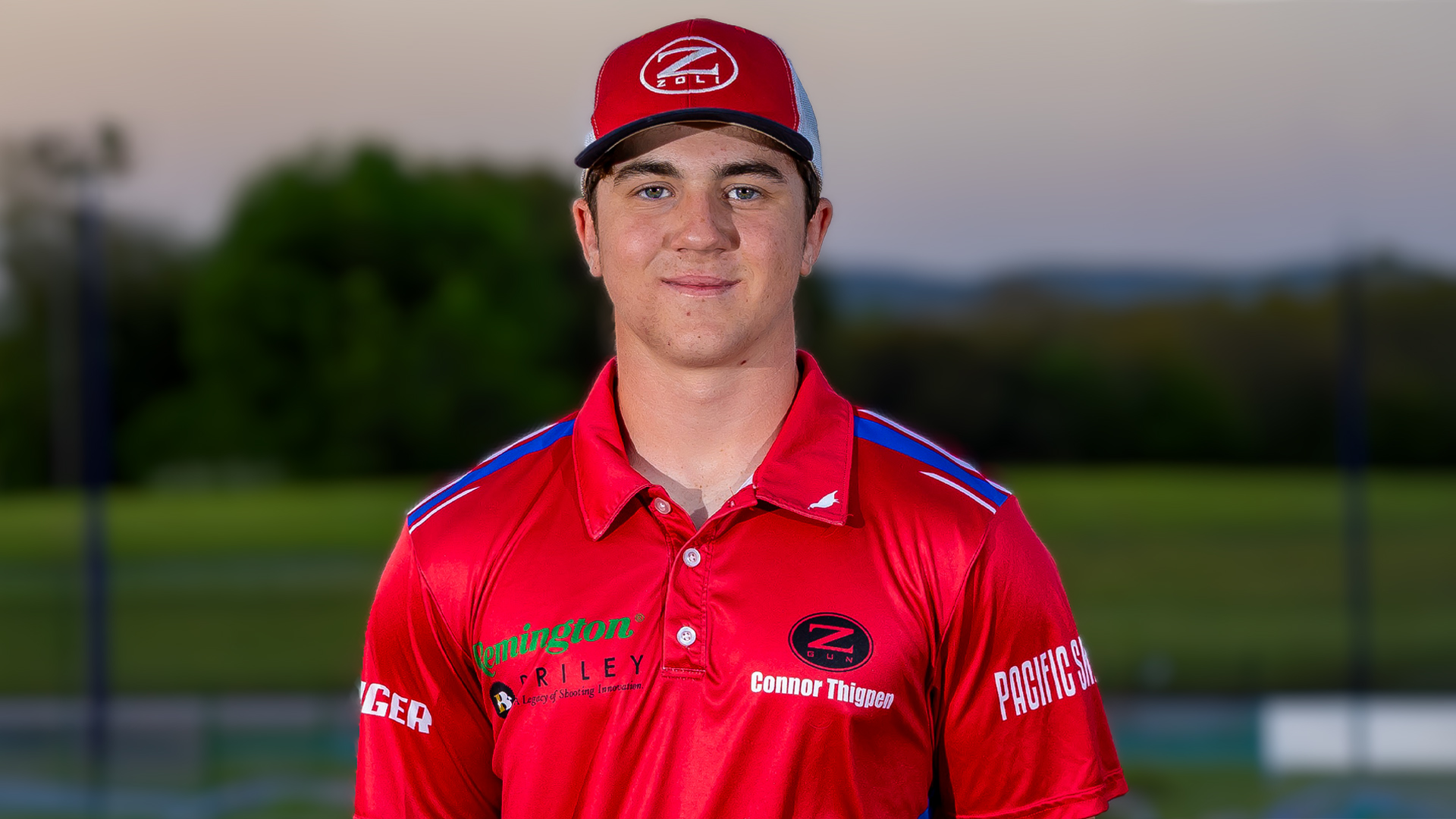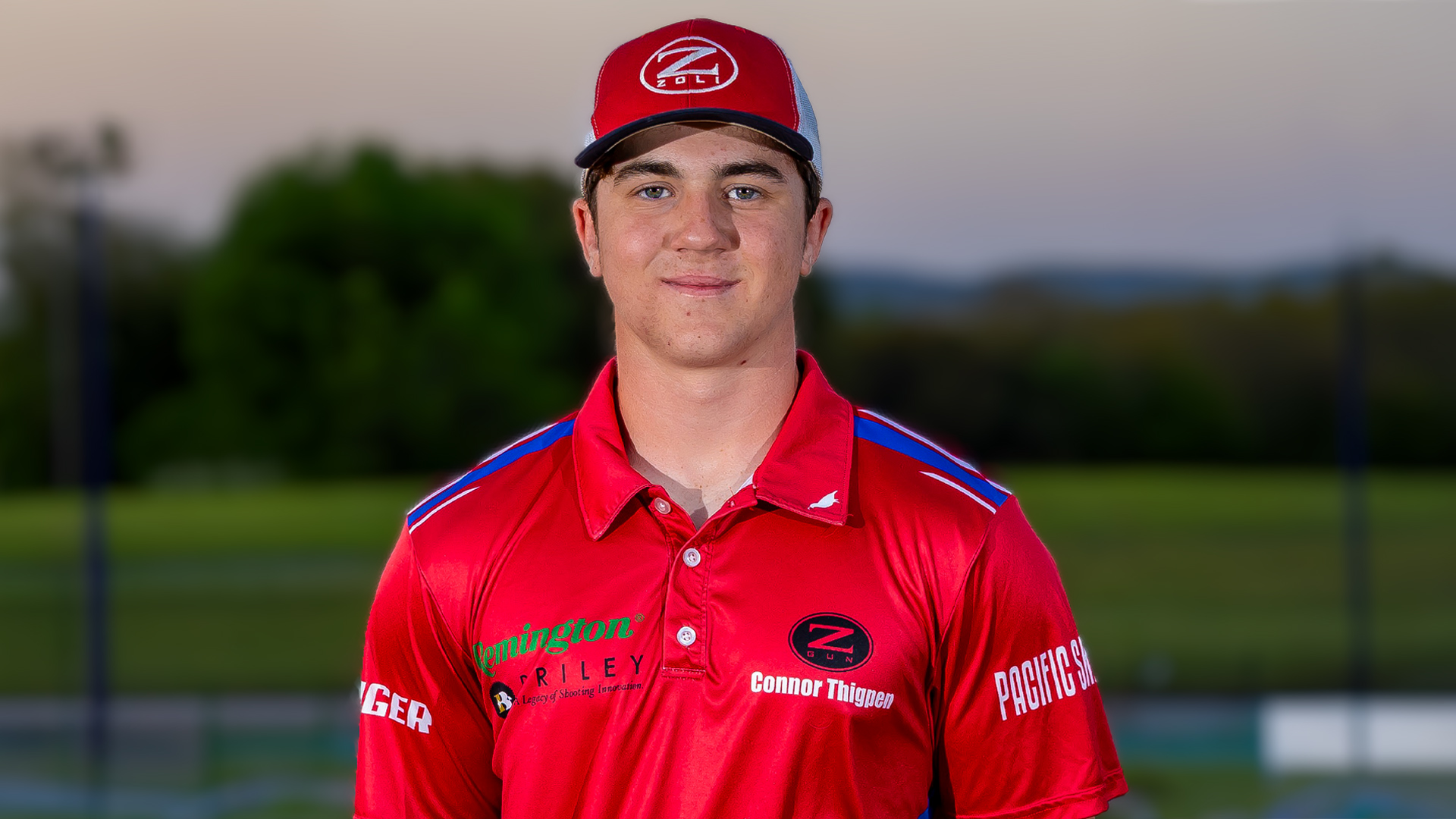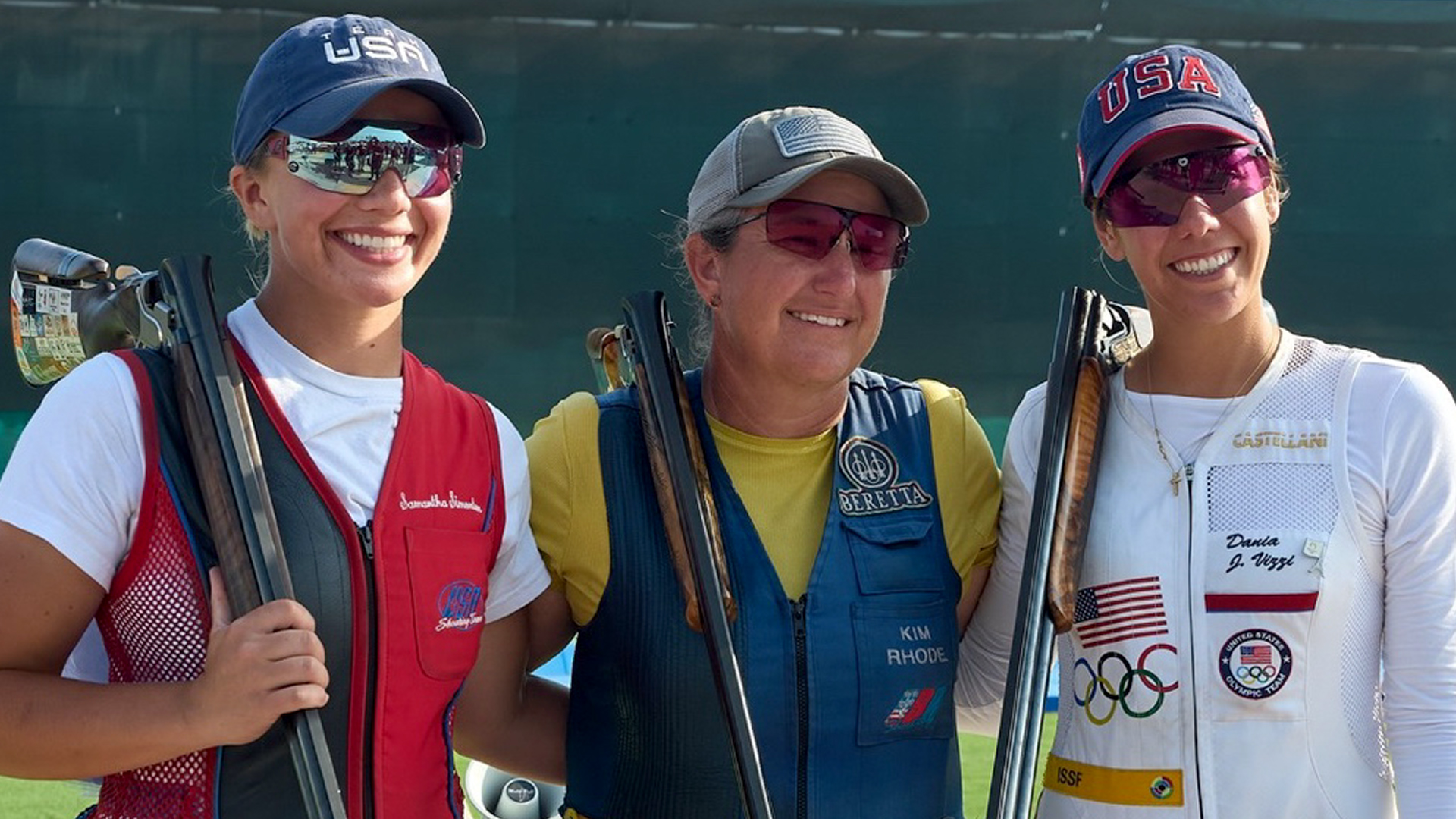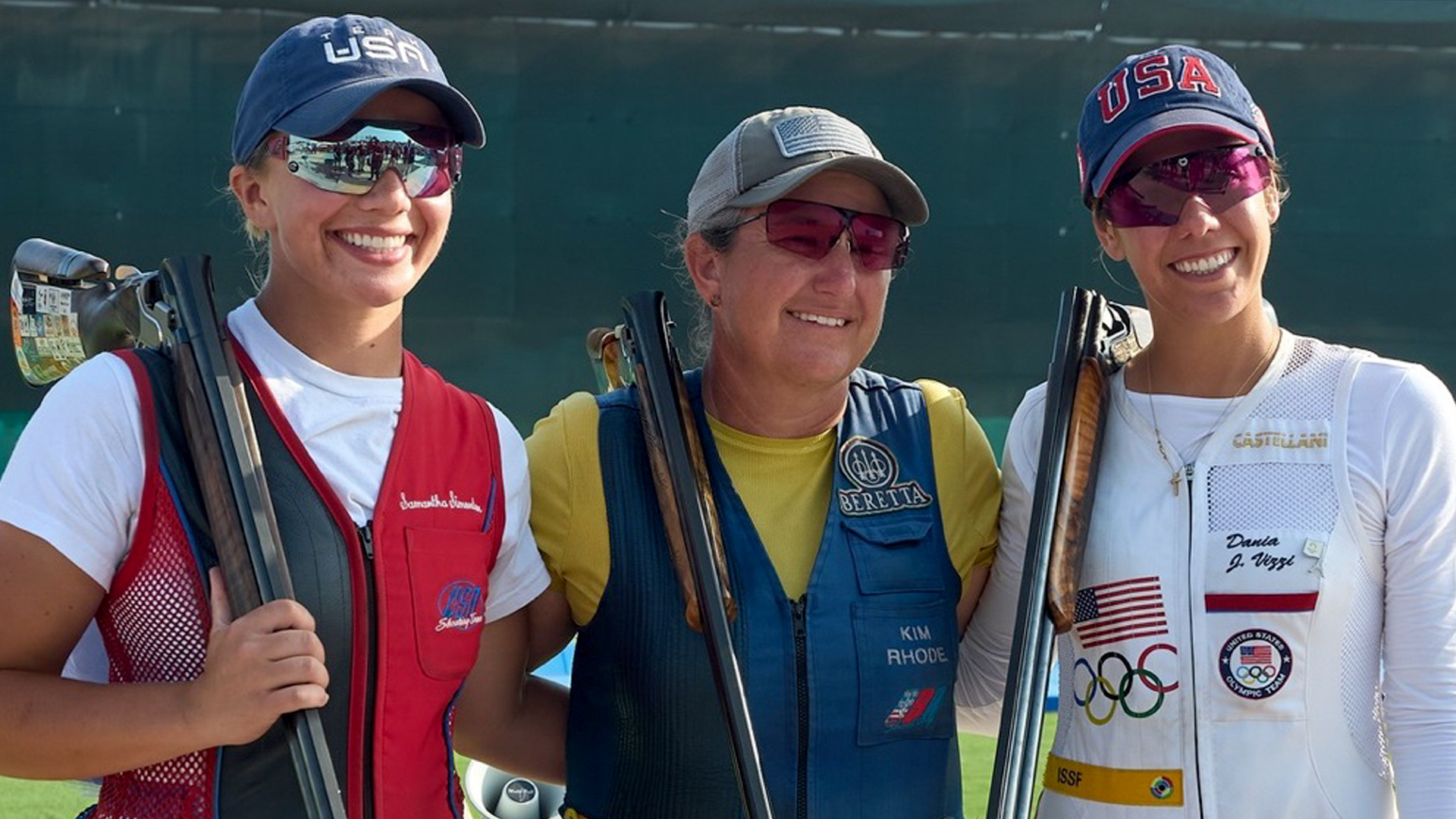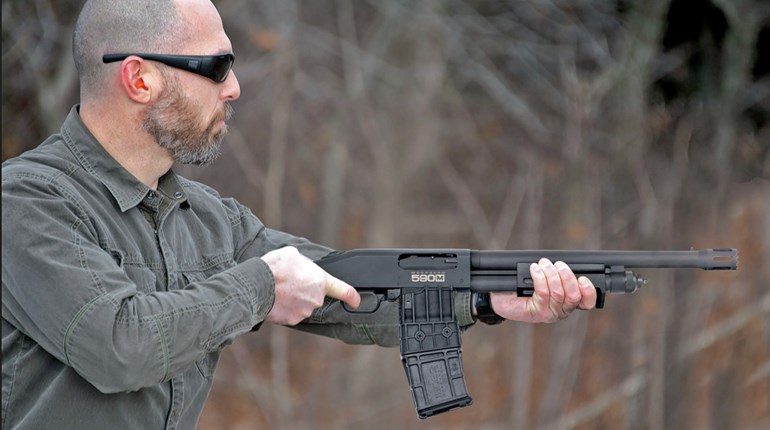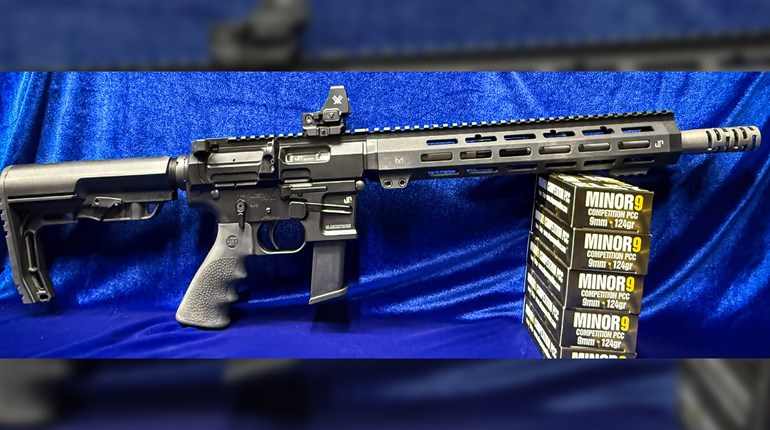
From the August 2004 issue of Shooting Sports USA, an article on how to improve Black Powder Cartridge Rifle (BPCR) chicken scores by Ron A. Calderone— the first NRA silhouette rifle shooter to ever to complete the BPCR Grand Slam.
Black Powder Rifle Silhouette is a demanding sport that requires a dynamic mix of long-range accuracy from crossed sticks and the ability to shoot from the offhand position—all with the same rifle. The latter of the two takes a back seat with most competitors, or else there’d be less popularity in this statement: “Matches are lost on pigs and won on chickens.” Also too common is: “I’ve got a good score going; if only I can hit one chicken today, I won’t embarrass myself.”
Your chicken score can improve, if you understand they require a completely different mental attitude as well as a different physical form and rifle sight-in process.
First, a load must be developed that will group within four inches at that distance. It’s good to know the 200-meter target requires the least work to achieve an accurate load because it is so close and is least affected by wind and mirage.
You don’t shoot chickens for score from cross sticks, so why sight-in from them? Since you are shooting from a totally different position, sighting-in for the 200-meter distance should be accomplished differently as well. I recommend sighting-in from sand bags set on a solid bench. Place a sand bag under the toe of the stock and another under the forearm in the same position as your off hand will support the rifle while shooting. This method best recreates offhand shooting with all the stability of the bench. Match rifles will shoot to a different point of impact when fired over sandbags as cross sticks. Experiment with both methods to verify this for yourself.
Once your rifle will shoot 10 shots from a sandbagged rest into a chicken target at 200 meters, it’s time to work on your form. The difficulty here lies in the ability, or inability, to hold the rifle accurately in the offhand position long enough to hit effectively.
My position has evolved from 20 years of shooting smallbore rifle silhouette and observing other shooters—both good and not so good. I stand with my feet comfortably spread apart at approximately 45 degrees to the target. I extend my offhand arm out and point at the chicken I wish to hit and allow my eyes to align and move my feet in a slow shuffle in order to align my body with this target. Your legs are what hold you on target when shooting offhand, and if you have lined up your body so there is no twisting action to fight to stay on target, then your arms are needed only to support the rifle. If the arms are in conflict with the lower body, then a miss left or right will result. When I pick up my rifle, I will then be aligned for natural point-of-aim. Properly done this method should eliminate misses left or right of the target. Now you can concentrate on the remaining element of elevation.
Moving to the upper body and its job to control elevation, it’s common sense that no one can hold a 12-pound rifle through 10 shots on muscle power alone. I highly recommend pulling your offhand elbow and forearm tight against your rib cage, with you forearm supporting hand as far back against the trigger guard action as possible. This allows for a solid skeletal support structure rather than relying solely on muscle power.
Practice, Practice, Practice
Here in southern Arizona we are blessed with good shooting weather nearly all year around, with smallbore, high power and BPCR matches being conducted every month. Shooting matches every month will help you become a better shot, but that is not enough. While other important exercises include running, cycling, and weight lifting, I believe dry firing at home to be the single-most-important exercise to improving your skill at offhand. If you happen not to live in a place where shooting is a 12-month sport, you may still retain and work on your form by dry firing at home.
You never want to dry fire on an empty chamber, so a good quality snap cap—with soft primer insert to absorb the impact of the firing pin—should be employed. My Browning High Wall has been dry fired thousands of times in this manner without ill effect.
My target is a piece of bright-white card stock with a small dot in its center to approximate a chicken-scaled target. This target is placed 30 feet from my position with a 100-watt bulb lighting and defining it. At this point, I may work on my form as long as needed without driving to the range. I also employ my match timer while dry firing. Continuous firing for one, two or three minutes can be achieved. The benefit here is to build muscle power, breath control and staying power. Doing this three nights a week for 30 minutes should create a noticeable difference in your next match.
Another excellent method of practice is using an air rifle. High-quality air guns can aid in a shooter’s quest for better control on the chickens. Scaled-down paper targets on the market are perfect for a 30-foot indoor range. Simple peep sights can be substituted for the typical barrel-mounted sights to duplicate those on you match rifle. Whatever sight you chose, remember that the purpose of air rifle practice is to complement your dry fire practice with the match rifle. Since the air gun is dynamic and fires a real projectile with great accuracy at 30 feet, your feedback is immediate. You will know at once if your feet and body were positioned correctly and whether follow through was accomplished. Bear in mind you are attempting to condition your body, improve follow through and—most importantly—condition your mind to hit every chicken.
Mental conditioning is probably the most difficult aspect of shooting offhand to master. All the prior work described thus far will be for naught if your mind is not in the right place. Think of offhand shooting as a series of stages. The first stage is to have complete and total confidence in your rifle and load. Second, you must come to the line with your gear with time to spare to get ready for the relay on which you are about to fire. Third, you must align your body and find your first target. Fourth, assess wind and light conditions to plan your sight-in process.
Sighting-in during the beginning of the first relay will add to confidence in your rifle, sight setting and load as previously described. At this stage, I recommend sighting-in from the sitting position with rifle held firmly and elbows resting just inside the knees to duplicate shooting offhand. Follow this with two or three dry-fired shots using your snap cap to verify your offhand position. Most shooters prefer to fire one or more shots on the practice gong from the offhand position prior to going for score. This is good verification of your zero, but did you just waste two good offhand shots that could have been for record? Here begins the mind games and the effects of mental conditioning.
No one has ever hit more than one target at a time in any silhouette match. Every five-in-a-row, or 10-in-a-row, or even a perfect score of 40x40 fired in smallbore, was accomplished one shot at a time. No one can come to the line expecting to hit five-in-a-row and expect to shoot well. Imagine every shot is its own match. It counts for nothing and it counts for everything all at once. If you hit the target—or miss—it has very little meaning on your next shot, since your next shot has not happened yet. Live in the now.
My most frequently asked question about shooting 10 chickens-in-a-row is: “What were you thinking as you aimed the last shot?” My answer is always “nothing.” I honestly believe my mental state of mind was constant and blank for each shot. Thought process was restricted to body position and follow through. If you are thinking at the moment of primer ignition, you may talk yourself out of a hit. If you have dry fired, lifted weights, run and prepared your body physically, shooting offhand will become routine.
Why should you accept low chicken scores as part of the game? I haven’t.







